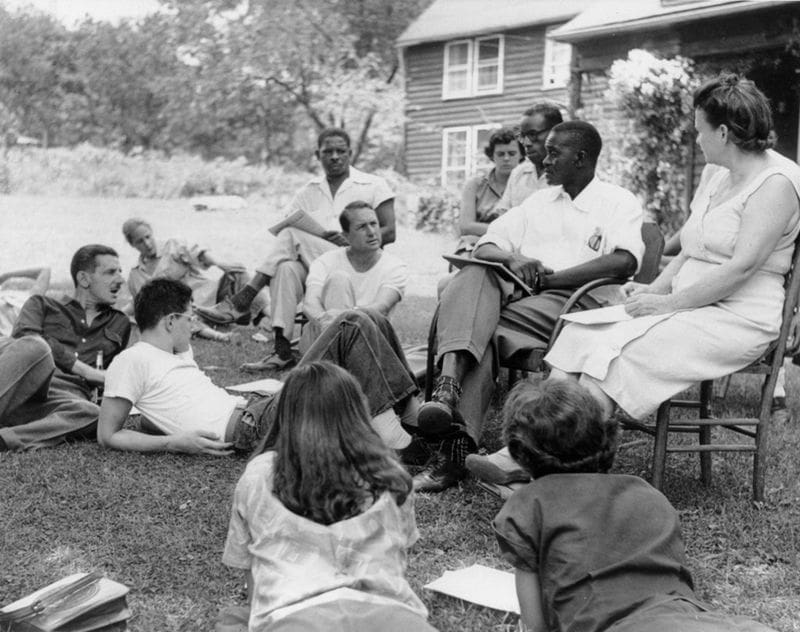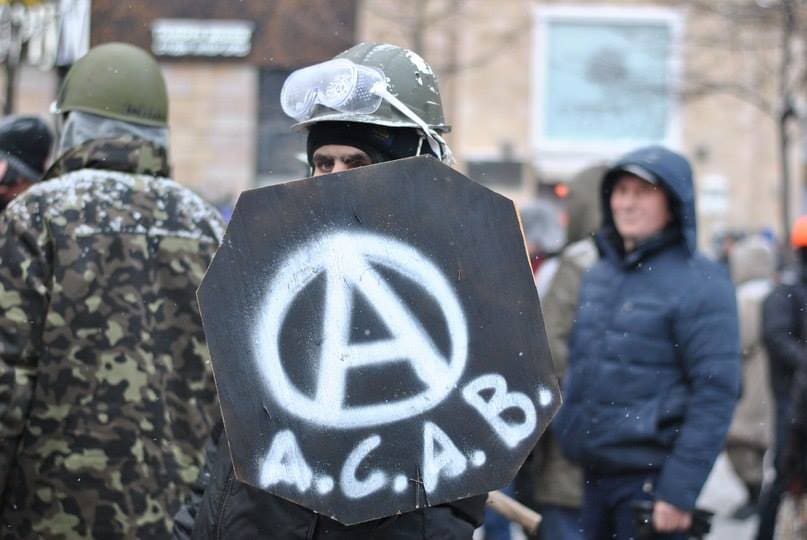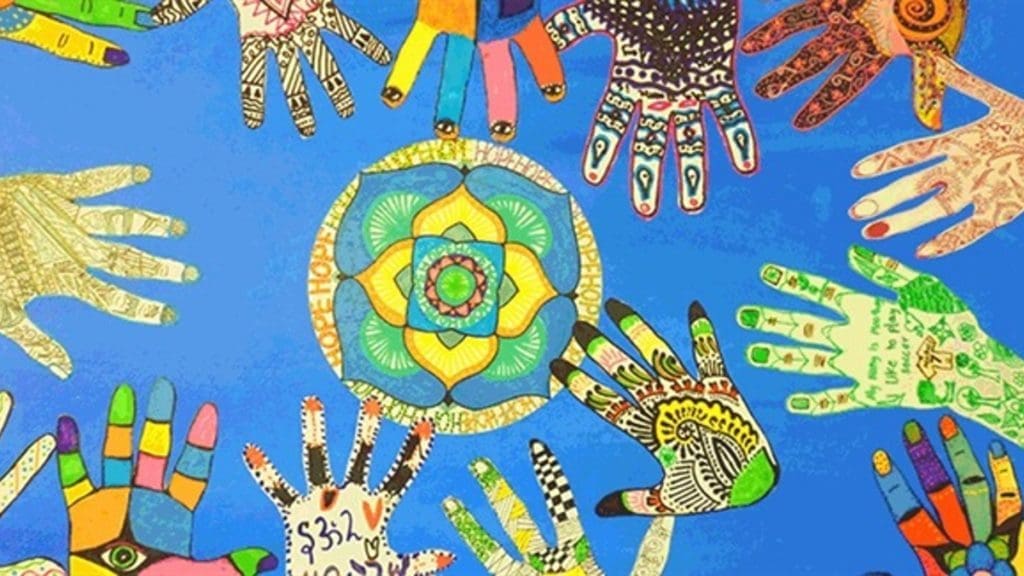AntiNote: We are pleased to present the first in a limited run of selections from the brief life of the Smiley and West podcast, which has kindly given us the nod to print portions of their work.
One of the last interviews they did was with Princeton professor Jeffrey Stout. A longtime colleague of Cornel West, he shared some ideas from his own work examining the structures of social movements and the dynamics of domination.
His comments about movements’ fundamental duties—to engage in long processes of face-to-face organizing, as well as to develop and adhere to broad visions of the world they are fighting to create (one free of domination)—touch on topics of major concern to the Antidote Writers Collective.
He also makes important observations about topics ranging from the Egyptian revolution* to the Mexican-American War to drone strikes, and somehow ties it all together. It seems sensible, then, to get out of his way so he can get started.
The following is an extended excerpt of a radio interview, edited for readability.
Cornel West: My first question is, what does it mean to you, brother Jeff, to be a democratic intellectual?
Jeffrey Stout: Oh, my goodness. Well, you mentioned my grandson Myles just a minute ago. You know who he’s named after? Myles Horton.
Myles Horton was one of the key organizers in the era of the civil rights movement, and co-founder of the Highlander Institute. Just think of it this way: before there was Martin Luther King as a public figure, Rosa Parks changed the life of her city by refusing to move on the bus. And before that happened, she was in a citizenship school at the Highlander Institute, organized by Myles Horton and taught by Septima Clark.
You ask what it is to be a democratic intellectual; part of it is commitment to the struggle for non-domination and inclusion—“liberty and justice for all” is another way of putting it—but it’s also a matter of trying to figure out how that struggle works, how it succeeds.
And that’s why I think there’s a connection between your mention of my grandson’s name and what the vocation of a democratic intellectual is. It’s not just a matter of imagining the ideals, it’s trying to figure out how the struggle can make progress.
CW: I consider your last texts classics in the democratic intellectual tradition—Democracy and Tradition on the one hand, and Blessed Are the Organized on the other. And we should add, of course, Myles Horton’s great autobiography The Long Haul, which is a text that ought to be read and re-read. But tell us, what do you mean by “domination” and critiques of domination in the name of a deeper radical democracy?
JS: One group or person dominates another when that group is in a position to exercise power arbitrarily over the other. That’s the key. And notice the way I put that. The idea isn’t just that one person is actually exercising their power. It’s a structural matter. It’s a matter of whether one person is in a position to behave arbitrarily towards somebody else. That means that the other person isn’t in a position to effectively influence or contest the other person’s decisions.
There are a number of key examples of what domination looks like. One is the relation of a conqueror to a conquered people, and another is the relation of a theocratic king to a people that is actually religiously plural. And another, most obviously, is the relation of master to slave.
Tavis Smiley: Some listening to that definition, Professor Stout, could assume that the United States would be a prime example of a dominator. Except that if you were talking to a person who makes decisions on behalf of our government, they would say that these decisions are not made arbitrarily. So that word becomes key in your definition. Can you take that a step further, with regard to the U.S. and how we treat other countries around the globe?
JS: Well, it’s a matter of how we treat other countries around the globe, but it’s also a matter of how people in the U.S. are treated. Our country is a study in ambiguity, ethically, politically. On the one hand we have a constitution that is basically a set of tools for protecting against domination. Not the original constitution in its entirety, of course, because of the failure to address the slavery issue.
The provision concerning Congress’s power to declare war is an attempt to keep presidents, the executives, from waging war on their own. It puts the power to wage war in the hands of a group that has to debate something; a representative assembly. Just think how eviscerated the War Powers provision in the constitution has become since 1952. We’re to the point where presidents have free range.
This was the very issue that Abraham Lincoln made a great deal of when he was a representative, protesting President Polk’s invasion of Mexico. Lincoln’s failure, when he was in Congress, to bring a halt to that act of domination—which is what Lincoln declared it—sent him into a deep depression.
Now we have a country that’s officially dedicated to “liberty and justice for all,” but the country has almost 800 military bases overseas. There’s no way for this situation to be viewed by others as anything but one group—in this case a nation, the U.S.—being in a position to exercise power arbitrarily over others. And that’s exactly what’s happened in our drone program, and so on.
The notion of “arbitrary” in the traditional definition of domination comes down to us from Cicero through all the great modern democratic thinkers, including Lincoln. The idea is, does the person making the decision, is that person in a position to do as he pleases? When that person is in a position to do as he pleases, that means there’s no effective influence on the part of the people affected by the decision, or others who care about justice, to enter in and constrain the decision before it’s undertaken.
It’s partly a question of influence before the decision is made, and then also is a matter of whether the decisions can be contested effectively afterwards. The provisions in the First Amendment to allow people to petition, to have their grievances taken care of, to assemble, to have free speech, free press—this is all meant to open it up so that it’s not just one person’s whim. It’s protecting against that.
That key term “arbitrary” appears in judge Richard J. Leon’s most recent ruling ordering the National Security Agency to stop collecting data on the personal calls of the two plaintiffs in that case—and also ordering the NSA to destroy the records of their calling history. Here’s what judge Leon said: “I cannot imagine a more indiscriminate and arbitrary invasion than the systematic and high-tech collection and retention of personal data on virtually every single citizen.”
He’s not using the word “arbitrary” by accident. It connects with the theme of the inability of others outside the decision-making body to influence the decision and then to contest it later. It’s all done in private.
CW: What kinds of countervailing movements or forms of insurgency are in place—can be in place—in light of these various forms of domination?
JS: Well, there are many attempts, and part of what we need to do as democratic citizens is think back over the course of American history and see what it’s looked like over time. The question of how large-scale change happens ought to be the central question of social theory today.
We’re much better at diagnosing the various forms of domination and the related ills of exploitation and poverty—that’s the unholy trinity of contemporary social ills: domination, exploitation and poverty; they’re all intertwined, with domination as the most basic. But to go about struggling against those social ills and trying to achieve something better, we have to look to the past and also to contemporary examples of success.
We’re way short of having the degree of organized strength that was mustered in the abolitionist movement or the movement to enfranchise women or the labor movement at its height, or the civil rights movement at its height. But here’s one thing to keep in mind: in all of those cases—where we have such strong memories of major achievements—we’re talking about at least four decades of dedicated organizing, much of it on a face-to-face basis, before enough citizens’ counter-power was generated to create the possibility of change.
Think back to the abolitionist movement: in 1830, when William Lloyd Garrison called for the formation of abolitionist societies—that is, organized citizens’ groups struggling on this matter—the abolitionist movement was mainly centered in Philadelphia, and it consisted mainly of a bunch of lawyers. Take that forward several decades and you have it re-centered in New England and you have almost everybody in New England organized on a face-to-face basis.
At that point, the rubber hits the road. At that point, something large can happen. In each of the major social movements that have led to that degree of social change in America—but also in other places; look at South Africa, look at the Polish struggle against Soviet domination—in all of these cases, the organizing looks remarkably similar.
So in the U.S., since the heyday of the civil rights movement, organizing around the issues of civil rights began to wane very significantly. During that same period, the labor movement has largely disintegrated. The best news on the other side of the ledger is the increasingly widespread formation of non-partisan citizens’ organizations that involve local gatherings of institutions that exist in the relevant communities, drawing them into citizens’ organizations that learn how to acquire power and exercise it—so far largely on the local level.
And part of the question is whether this—and a resurgence of the labor movement and other things around issues regarding race and class and gender, sexual preference, militarism—whether all this can get enough people mobilized, enough people organized, to begin to exert the kind of counter-power that’s required.
I want to emphasize the face-to-face element. There’s no example of large-scale social change that does not involve thousands of one-on-one meetings, small group meetings.
TS: Jeff, if I can muddy the waters just a little bit: social media, as you know, advances the opportunities for people to protest. You look at a place like Egypt; Twitter and the like help build those protests. But that runs counter to the argument, in this era, of face-to-face meetings. Social media doesn’t require that.
JS: Let’s look at the Egypt example. It’s a very good one to think about. The social media there played an extremely important role in gathering people into Tahrir Square to protest the Mubarak regime, and there’s no question that social media played a crucial role in bringing down Mubarak.
If we compare this to major social movements in the past, every one of them created new means of communication. The English working class, as E.P. Thompson pointed out, learned to read—in order to read Tom Paine and William Cobbett. They did it in the pubs, and there was a very healthy new way of communicating: through pamphlets. This is crucial to that era.
The parallel now is Twitter, it’s Facebook, and so on. But let’s take it a step further. What has happened since Tahrir Square? A dictator came down—and then what happened? There were some elections; the elections put into power a group—the Muslim Brotherhood—that had been organizing on a face-to-face basis for forty years.
It’s not an accident that they were in a position to exercise power under those circumstances. But they exercised power on the principle of “dominate so as to avoid being dominated.” That’s not the same thing as democracy.
One thing that the young people who gathered in Tahrir Square have learned since the revolution in Egypt is that if they don’t get their act together, if they don’t find a way to have an organized presence in Egyptian life—and not just an ephemeral, episodic presence by turning up in Tahrir Square every once in a while—they are not going to exert the kind of consistent power that’s required.
Also, think of Occupy. There you had another important development. Squeamishness about having leaders—squeamishness about developing organized power—has led many people who were involved in Occupy to seek more organized ways to carry the struggle forward.
CW: I want to raise a question about your own activism. You go back to the legacy of Martin King, as well as anti-war activism, and then on to your struggles against Apartheid. How does one sustain forms of activism, when issues of character and excellence must be part and parcel of the grassroots organizer?
JS: This is another feature of the citizens’ organizations I’ve studied that have been most successful. A great example is the struggle over the horrible conditions of the shantytowns along the U.S.-Mexican border in Texas in the early 1990s. Here was a completely disenfranchised population living in the U.S., most of them American citizens. No running water. No sewage. No paved streets. Children walking to school in what used to be called “Third World” health conditions. Terrible diseases.
They organized, mainly through their churches. But what that organizing involved was not just face-to-face meetings, it was finding leaders and cultivating them. Every one of those face-to-face meetings was a leader or an organizer looking for other people who had some leadership qualities that could be cultivated, and then sending them into training.
This goes back to the point about Myles Horton and Rosa Parks. Part of what those citizenship schools were for, in the civil rights movement, was to help people develop the courage, the knowledge of the situation, the practical wisdom to move forward.
That’s not something that just happens by accident. That happens within the context of these movements and within the context of these broad-based citizen’s organizations, on purpose. Because people are trying to use forms of organized power to empower people to become strong, virtuous, courageous citizens who know how to do very important things like channel their anger—properly tempered by practical wisdom on the one hand, and love on the other.
If they can’t do that, then their organized power is going to turn into the opposite of what they’re hoping for.
CW: Another form of domination.
JS: Another form of domination.
Transcribed and printed with permission. Listen to the whole episode here.





